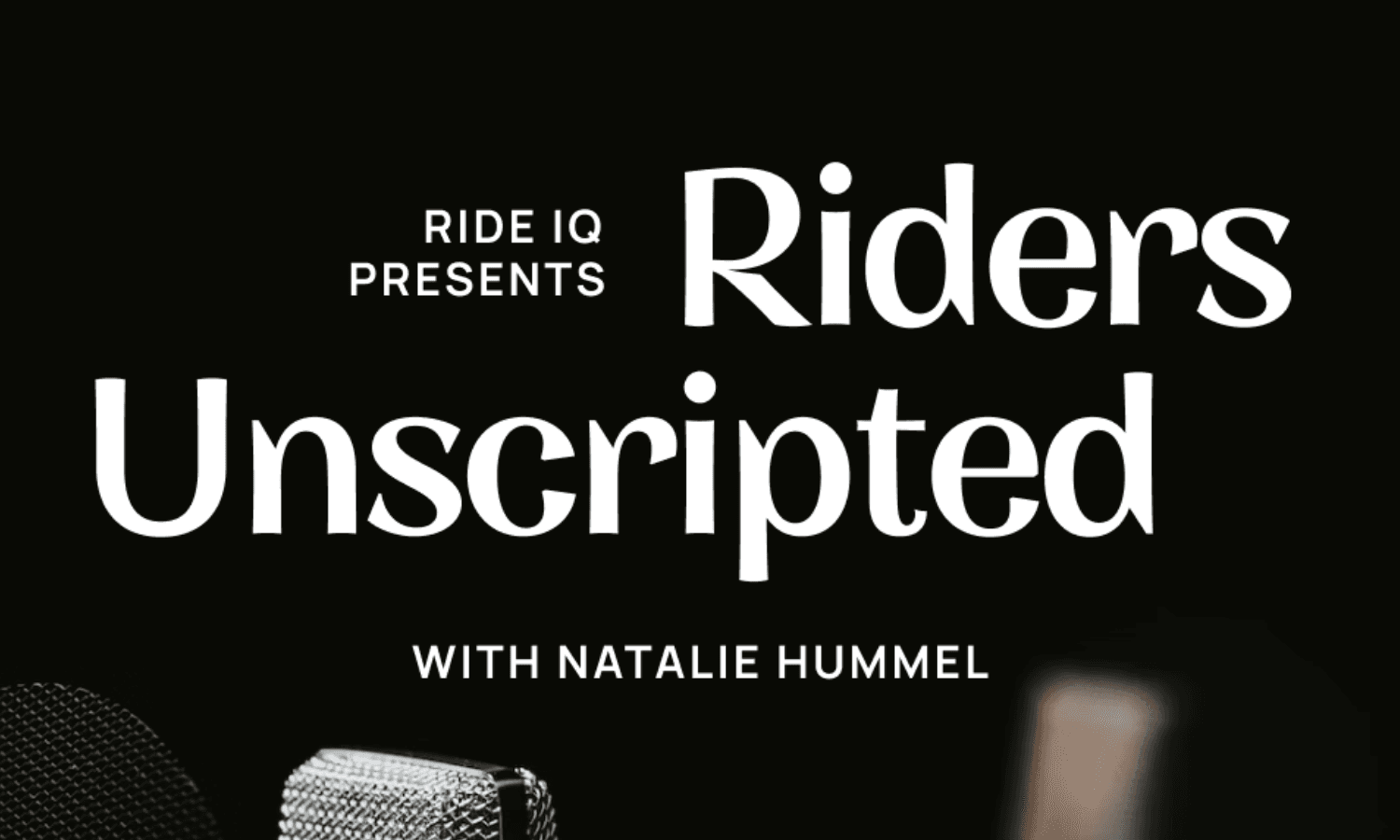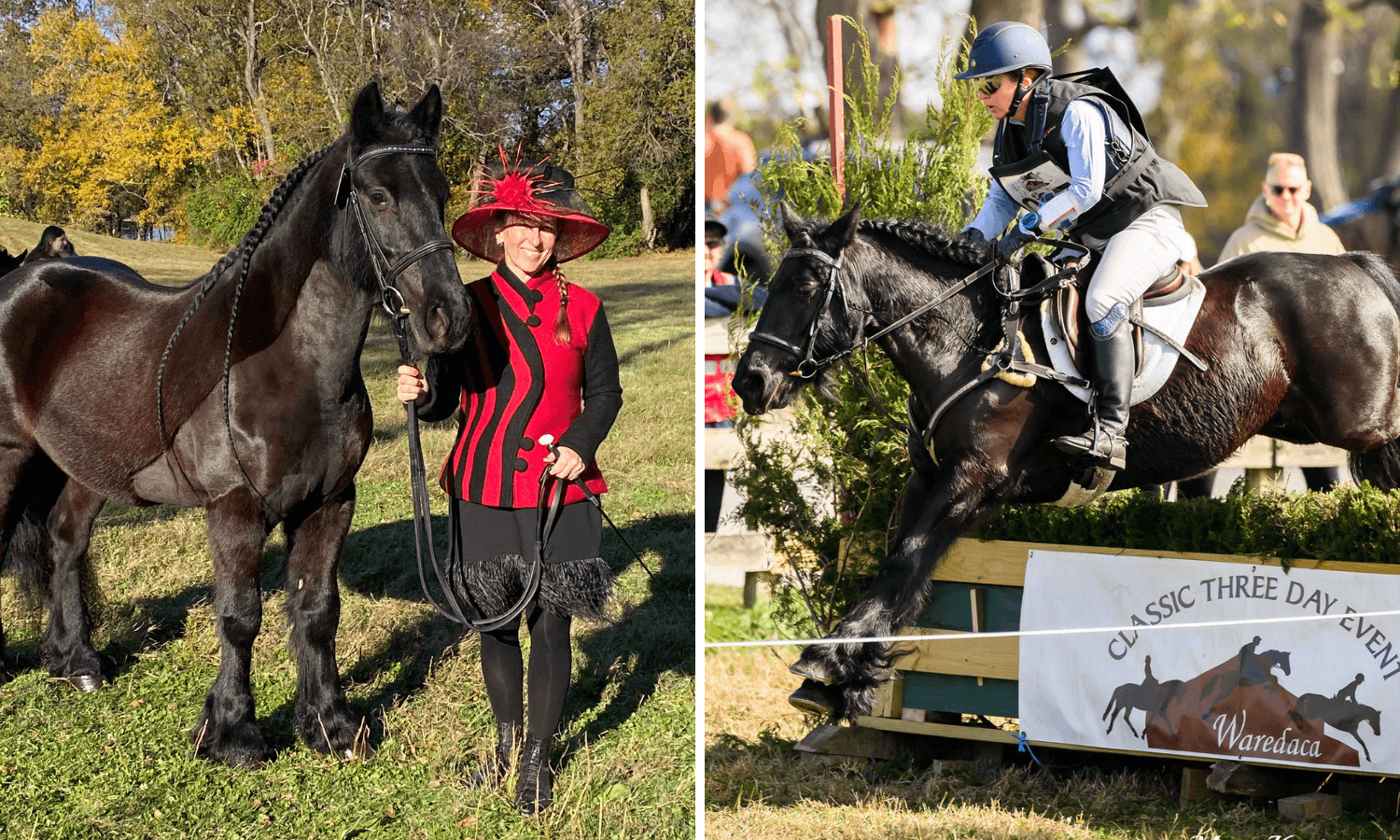Introducing “Riders Unscripted”: Conversations Between Amateur Riders and a Sports Psychology Coach

There are lots of podcasts related to horse sports out there. You can find training advice, stable management tips, and even veterinary recommendations in various podcasts. But the podcast series “Riders Unscripted” from Ride iQ is the first, to my knowledge, that features one-on-one conversations between amateur riders and a sports psychology coach.
In each episode, an anonymous rider speaks to Natalie Hummel, a sports psychology coach, and they essentially engage in a private session that is made public to listeners via the podcast. The topics they cover are vast—from managing anxiety in competition to trying to find a balance between personal and professional life. With the protection of anonymity, the riders bravely come forward with incredibly candid reflections as Natalie guides them through the conversation. To the listener, it feels like being a fly on the wall in what is essentially a riding therapy session. That the guests are amateur riders makes the series all the more relatable.
The session we feature in this article revolves around building confidence and handling setbacks. The rider in this episode, whose name is protected to preserve her anonymity, reflects on a recent challenge during a four-star competition when her horse stopped in a triple combination. The rider explains in detail how things did not go as planned in the show jumping, and she and Natalie discuss strategies to overcome the fear and anxiety she felt in that phase.
The rider admits that she experienced a feeling of utter helplessness in the competition ring, and also in the days and weeks afterwards. “There's a part of me that knows that's not the end of the world...but I also know that if I get stuck on it, then I can make it a really big deal,” she says. Natalie helps the rider recognize that her thinking highlights an internal battle: one between rational thinking and an emotional response to failure. Both are valid, but to process them, she has to recognize them. Natalie then guides the rider through a process of self-awareness and emotional regulation, emphasizing the importance of staying present and learning from mistakes rather than being bogged down by them.
As a rider who has experienced a very similar roadblock, listening to this conversation made me wish that I had been able to listen to a podcast like this and apply the tools to my own situation. In 2021, I was competing in my first five-star at the Land Rover Kentucky Three-Day Event. I had a clear cross-country round, and so I was feeling excited and confident about the final phase. Show jumping was usually a strong phase for me and my horse, Bendigo, so it surprised me when I went crashing through the triple combination and almost fell off.
My wonderful horse kept me on top of him, and we managed to finish the round well. However, after that I always found myself panicking going into triple combinations. I didn’t really know why that had happened (it probably had to do with some nerves—I was, after all, competing at the biggest event of my life so far), and I couldn’t really explain it. I had some version of PTSD about triple combinations for quite a while after that, and it transferred to my other horses as well. I never really addressed the issue, but eventually through practice and experience moved forward.
“You don't have tools, so your only tool is to avoid...which [] is the most common thing in athletics and in high performers.” Natalie’s explanation of the thought processes of the rider in this episode remind me of my own tactic when faced with a similar situation: just to avoid the issue entirely, and to try not to think about it. But managing our emotions is a huge advantage if we can figure out how to do it.
“What your nervous system is trying to protect you from is feeling helpless...But the truth is, we can feel helpless; it's just energy.” Natalie’s advice to the rider surprised me—we are allowed to feel helpless? Helplessness has always seemed, to me, to be such a negative emotion. But Natalie points out that all emotions are energy, and we just have to direct that energy. Energy of all kinds is natural and manageable and being open to feeling it is key to overcoming challenges like fear and anxiety. Overall, this podcast episode provided real-time insights into handling performance anxiety, emotional resilience, and the need for practical preparation to succeed in competitive environments.
The transformation of the rider’s language in the course of a single session was powerful. The rider went from describing her helplessness during the competition—“In the moment...I felt like there was nothing I can do...there wasn’t enough strength in my legs to kick”—to declaring confidently, “I am here, and I am ready” by the end of the session. That affirmation showed the clear resolve that she had developed during the session. She was not going to let one mistake overshadow all of the other positive parts of the competition, nor that she knew she and her horse could be up to the challenge next time.
The Riders Unscripted podcasts are just that: unscripted. The riders themselves have no idea what they will say in these sessions, because part of the journey of self-discovery involves talking through their emotions and thoughts to better understand their own mental processes. Hats off to all of the riders who participate in these podcasts—and in particular, the rider on the episode that we featured in this article—for their willingness to share their experiences with others and to do the hard but rewarding work of digging into their mental processes.
Learn more about Ride iQ and subscribe today at ride-iq.com.















